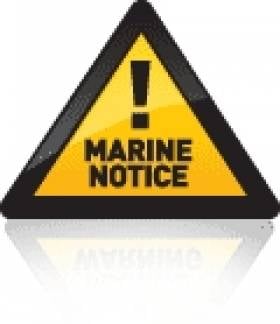Displaying items by tag: Passenger Ships
Reminder of Requirements for Passenger Ship and Crew Transfer Tendering Operations
The Department of Transport advises ship owners, ship operators, shipmasters, harbourmasters and ships’ agents of the requirements for passenger ships engaged in the tendering of passengers between the ship and the shore and for the transfer of crew/technicians embarking or disembarking a seagoing vessel at anchor.
Passenger ship tendering operations, like those between a cruise liner and the shore, will normally be permitted in the summer period only and are subject to annual review. All tender vessels must comply with the relevant provisions of the Merchant Shipping Acts.
Full details of the relevant tendering types and requirements can be found in Marine Notice No 08 of 2024, attached below.
Marine Notice: AIM Requirements For Seagoing Passenger Ships
#MarineNotice - As of 31 October 2014, there will be new requirements for Automatic Identification Systems (AIS) for passenger ships of classes B, C, D, IIA, III and VI.
The European Communities (Vessel Traffic Monitoring and Information System) Regulations 2010 [SI No 573 of 2010] as amended by the European Communities (Vessel Traffic Monitoring and Information System) (Amendment) Regulations 2012 [SI No 71 of 2012] include the requirements for approved AIS to be fitted on vessels.
Regulation 9A sets out the scope for exemptions from the requirements of Regulations 8 and 9, which may include passenger ships below 15 metres in length or 300 gross tonnage engaged on non-international voyages, and Marine Notice 22 of 2012 refers to such exemptions from the requirements to fit an approved AIS for domestic passenger vessels of less than 15m or 300GT.
Vessels less than 15 metres in length will in general be exempted from the requirement to fit an approved AIS (ie, one which satisfies the performance standards drawn up by the International Maritime Organisation) but will, in most cases, be required to fit AIS type B.
The specific exemption criteria and conditions thereof, together with the detailed carriage requirements for AIS on seagoing domestic passenger vessels are set out in the annex to Marine Notice No 51 of 2014, a PDF of which is available to read or download HERE.
The Marine Survey Office will verify compliance with the carriage requirements and the operation of the AIS during annual surveys and inspections of passenger vessels from 31 October.





























































